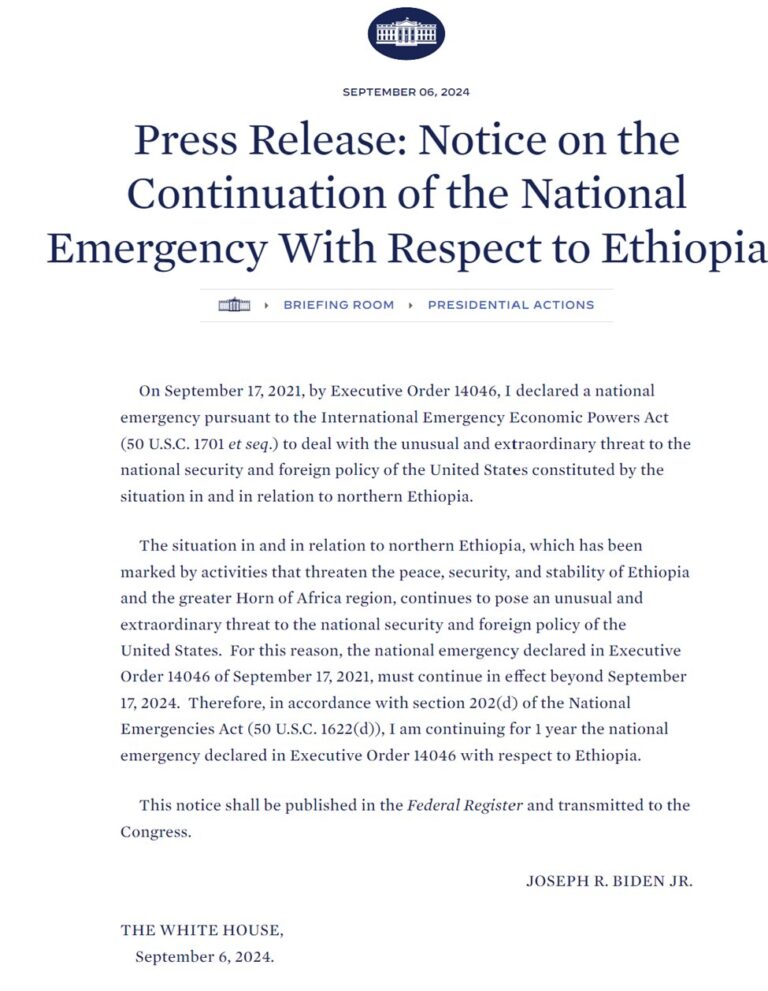Is the Sky Falling on Fake Diplomacy at the State Department?: Why I Support Rex Tillerson’s State House Cleaning
 Author’s Note: In the past few days, it has been widely reported that the fix is in to axe Rex Tillerson from the State Department and replace him with CIA Director Mike Pompeo by January 2018. There has been much talk about a “Rexit” since the summer when it was disclosed that Tillerson had described President Trump as a “moron”. Trump offered to compare his IQ scores with Tillerson disputing the allegation. The relationship between Trump and Secretary Tillerson’s over the past year has been tense and rocky. They don’t seem to see eye to eye on a number of issues including the Iran nuclear deal, the confrontation with North Korea and the Middle East. Trump has undercut Tillerson’s efforts at every turn calling Tillerson’s efforts to diplomatically address North Korea’s provocations as a waste of time.
Author’s Note: In the past few days, it has been widely reported that the fix is in to axe Rex Tillerson from the State Department and replace him with CIA Director Mike Pompeo by January 2018. There has been much talk about a “Rexit” since the summer when it was disclosed that Tillerson had described President Trump as a “moron”. Trump offered to compare his IQ scores with Tillerson disputing the allegation. The relationship between Trump and Secretary Tillerson’s over the past year has been tense and rocky. They don’t seem to see eye to eye on a number of issues including the Iran nuclear deal, the confrontation with North Korea and the Middle East. Trump has undercut Tillerson’s efforts at every turn calling Tillerson’s efforts to diplomatically address North Korea’s provocations as a waste of time.
Tillerson last week dismissed the latest rumors of his imminent departure “laughable”. Trump also dismissed it as “fake news”. He told reporters, “He’s here. Rex is here.” On December 1, Trump tweeted, “The media has been speculating that I fired Rex Tillerson or that he would be leaving soon – FAKE NEWS! He’s not leaving and while we disagree on certain subjects, (I call the final shots) we work well together and America is highly respected again!”
Perhaps it’s like the lyrics to that old Ray Conniff song: “That’s life, that’s life/ You take the joy, you take the sorrow. That’s life, that’s life/ You’re here today and gone tomorrow./ Tillerson is here in December, but will he still be here in January? That’s life in Trumpolitics.
Perhaps it does not matter who heads the State Department. Trump has repeatedly said on questions of foreign policy the buck stops with him. “I’m speaking with myself, number one, because I have a very good brain and I’ve said a lot of things. I know what I’m doing and I listen to a lot of people, I talk to a lot of people and at the appropriate time I’ll tell you who the people are. But my primary consultant is myself and I have a good instinct for this stuff.”
I believe Tillerson’s departure from State will be a monumental loss for American diplomacy at this moment in global history. His departure will accelerate the dizzying entropy in America’s current global “diplo-twitterplomacy”. Tillerson may be the last sane man with principle and integrity standing between guilty-pleading perjurers and conjurers of fake news and our imperiled “pale blue dot” of a planet, to borrow Carl Sagan’s phrase.
My readers will recall that I have been supportive of Secretary of State Rex Tillerson’s since he took office. As I have said on a number of previous occasions, I was convinced Trump and Tillerson will march lockstep in Barack Obama’s footsteps in Africa. I was so convinced that Trump and Tillerson will be mirror images of Obama and Hillary Clinton on Africa, in December 2016, I boldly declared that I will eat the proverbial crow if Trump and Tillerson took Africa off the U.S. taxpayer dole and ended the culture of panhandling on the continent. Suffice it to say that I have been snacking on morsels of “vegan crow” for the past few months.
I must note that some have expressed surprise and others dismay over my support of the Secretary Tillerson. “How could you support Trump’s Secretary of State?”
My support of Tillerson is principled, not blind or ideological. I wish to underscore that my views and support of Tillerson are based on his vision and actions on U.S. human rights, particularly in Africa. I do not aim to address his global foreign policy goals and objectives.
To my satisfaction, Tillerson says what he means and means what he says on the issue of human rights. On November 22, Tillerson did not mince his words when he said, “After careful and thorough analysis of the facts, it is clear that the situation in northern Rakhine State constitutes ethnic cleansing against the Rohingya.”
In September 2004, Colin Powell was in a quandary about Darfur as he minced his words to the Senate Foreign Relations Committee, “There is the matter of whether or not what is happening in Darfur is genocide.” Of course, the whole world knew genocide was taking place in Darfur beginning in 2003.
Tillerson unabashedly declared, “We express America’s values from the State Department — our commitment to freedom, our commitment to equal treatment of people the world over. And that message has never changed.” When asked about Trump’s remarks about the “many sides” that share blame for the violence in Charlottesville, Tillerson curtly replied, “The president speaks for himself.”
In August, Tillerson put his money where his mouth is when he told Egypt that the U.S. will withhold $95.7 million in military and economic aid, and would only release $195 million in additional military aid after it makes progress in its human rights record.”
The current U.S. Ambassador to Ethiopia, Michael Raynor, selected by Tillerson, testifying before the Senate Foreign Relations Committee in July 2017 stated, “If confirmed, I will advocate for full respect of the rights guaranteed under Ethiopia’s constitution, as well as for reforms that strengthen democratic institutions.” Less than two months into the job, Ambassador Raynor made good on his word when he issued an unprecedented Statement, “We encourage all Ethiopians to continue to express their views peacefully, and encourage Ethiopian authorities to permit peaceful expression of views.”
Nothing of this sort occurred during the tenure of Hillary Clinton or the Obama presidency. Obama and Clinton talked and talked about standing “on the right side of history”, but they never walked the talk, taken not even a single step, on the right side of history! But Tillerson refused to walk in the footsteps of Clinton and Obama and walked straight over to the right side of human rights history.
===========================================================
The Sky is Falling on “Fake Diplomacy” at the State Department and the Chicken Littles & Co. are Running Their Op-Eds and Telling Tales
One day as Chicken Little was walking in the woods, an acorn fell from a tree and hit her little head. “My, oh, my, the sky is falling. I must run and tell the lion about it” said a panicked Chicken Little as she ran off. Along the way she met Henny Penny and told her the sky is falling and she is running to the lion to tell him about it. “How do you know it?”, asked Henny Penny. “It hit me on the head, so I know it must be so”, said Chicken Little.
The two joined up running until they met Ducky Lucky. “The sky is falling” said Henny Penny. “We are going to the lion to tell him about it.” Ducky Lucky asked, “How do you know that?” Henny Penny replied, “It hit Chicken Little on the head.” Ducky Lucky joined the run until they met Foxey Loxey who asked, “Where are you all going?” Ducky Lucky said, “The sky is falling and we are going to tell the lion all about it.” Foxey Loxey asked, “Do you know where the lion lives?” None of them knew. “I do. Come with me and I can show you the way”, said Foxey Loxey and walked them right into his den. They all went in but they never, never come out again.
The Chicken Littles of the State Department are running around like a chicken with the head cut off (pun intended) shouting out on the op-ed pages that the sky is falling on the State Department. “My, oh, my, the sky is falling. We must run op-eds and tell the whole world all about it.” Standing at their side are scaremongering foreign policy experts, professionals, consultants, has-been diplomats, aid-panhandlers and others whose meal tickets are at grave risk from an end to business as usual and a genuine transformation of the State Department into a powerhouse of U.S. diplomacy in the 21st century.
Just in the past weeks, there have been a string of op-ed pieces from former State Department employees, diplomats and others announcing the sky is falling on the State Department.
The litany is the same. Secretary Tillerson is damaging U.S. diplomacy and America’s international leadership by failing to fill critical positions in the State Department, eliminating critical positions, slashing the department’s budget, creating a state department within the State Department and committing a parade of other horribles.
In a November 27 op-ed piece in the N.Y. Times, Nicholas Burns, former undersecretary to NATO and Ryan Cricker, former ambassador to Iraq and Afghanistan, slammed Tillerson for “draconian budget cuts for the State Department and his dismissive attitude toward our diplomats and diplomacy.” They claimed Tillerson and the administration are hellbent on “dismantl[ing] a great foreign service just when we need it most.”
In a November 24 op-ed piece, N.Y. Times reporter Gardiner Harris castigated Tillerson for seeking to “reshape the department by staff reduction” and for “decimating the State Department’s senior ranks by dismissals, early retirements and push outs of career foreign service officers.”
In a letter dated November 16, 2017, the usual suspects of cry-wolf ranking democrats in the House expressed “deep concern [over] the exodus of more than 100 senior Foreign Service Officers from the State Department” and lamented the reduction of “minister counselors by 15 percent, career ministers by 42 percent and career ambassadors by an astounding 60 percent.” They warned, “The amount of talent leaving the State Department endangers the institutions and undermines American leadership, security and interests around the world.”
In the December 2017 edition of The Foreign Service Journal, American Foreign Service Association President and former Ambassador Barbara Stephenson President issued the ultimate Chicken Little pronouncement bewailing the “dismantling of government as we know it.” She wrote. “There is no denying that our leadership ranks are being depleted at a dizzying speed, due in part to the decision to slash promotion numbers by more than half. The Foreign Service officer corps at State has lost 60 percent of its Career Ambassadors since January. Ranks of Career Ministers, our three-star equivalents, are down from 33 to 19. The ranks of our two-star Minister Counselors have fallen from 431 right after Labor Day to 369 today—and are still falling.”
Is it really the end of government as we know it at the State Department? “The lady doth protest too much, methinks.”
Reports of the death of the State Department have been greatly exaggerated, to paraphrase Mark Twain. According to a 2001 Brooking study, “Funding for the [State] department has been cut 50 percent in real terms since 1985. State’s fading influence is in turn fueling the exodus of many of its most talented young people, who are leaving for careers in the private sector in which pay is plentiful, promotions promising, and power prevalent.” Did government end as we knew it in the 1980s?
In an October 4 op-ed piece in Politico, Nik Steinberg, the former counselor and speechwriter to former U.S. ambassador to the U.N. announced, “Tillerson is running the State Department to the ground”. He warned, “The U.S. government is quietly losing its next generation of foreign policy leaders—an exodus that could undermine our institutions and interests for decades to come.”
In October 2017, Vanity Fair announced “Tillerson’s Job is on death watch as Moron-Gate explodes.” It added, “With few allies on Capitol Hill and fewer friends within the State Department, which he has been working to downsize, there aren’t many people in Washington left to speak on Tillerson’s behalf.”
In July 2017, Foreign Policy announced, “Morale has hit rock bottom at Foggy Bottom, as American foreign service officers languish and Rex Tillerson builds a mini-empire.” Tillerson is accused of creating a hermetically sealed “parallel department” (a state department within the State Department) in which “the rank and file are cut off from a detached leader, and morale has plunged to historic lows.”
In February 2017, the N.Y. Post hyperbolically declared, “It’s a bloodbath at the State Department.”
Hammering Secretaries of State
Hammering Secretaries of State is nothing new. Hillary Clinton was pummeled in the media for subordinating the Department’s need to her own presidential political ambitions. In a scathing 2016 report, the Inspector General lambasted Hillary for maintaining a private email server to transact State Department business.
In 2015, major questions were raised about Hillary’s role in the Russian uranium deal which involved major contributors to the Clinton Foundation. In 2012, Clinton was embroiled in a controversy in the Bengahazi attacks. She allegedly avoided responsibility by trying to spin the terrorist attacks as spontaneous when she knew they were planned.
In February 2003, Secretary of State Colin Powell went to the U.N and declared, “My colleagues, every statement I make today is backed up by sources, solid sources. These are not assertions. What we’re giving you are facts and conclusions based on solid intelligence.” He said, Iraq is making a “concerted effort to hide or destroy evidence of weapons of mass destruction.” That proved to be a colossal lie. That lie cost some 4,500 American lives by 2014 and plunged American taxpayers in the hole for more than 2 trillion dollars.
In 1973, Henry Kissinger held the dual positions of National Security Advisor and Secretary of State. Kissinger brought many of his NSC crew to the State Department creating an island of power inner circle (a state department within the State Department) on the sea of the State Department. Kissinger was the principal architect of Operation Menu which authorized the use of long-range B-52 heavy bombers to carpet bomb Cambodia. He orchestrated the overthrow of Salvador Allende, a democratically elected president of Chile in Chile in 1974. He encouraged President Richard Nixon to wiretap his political opponents. Kissinger was one of the principal operators in the intrigue, behind-the-scenes machinations, and paranoia which ultimately led to the Watergate scandal and brought down the Nixon presidency. Did government as we know it end after Watergate?
Tillerson’s critics portray him as a Johnny-come-lately to the foreign policy field swinging a machete willy-nilly in the halls of the State Department. But Tillerson oversaw some 75,000 employees at Exxon-Mobile operating in a number of countries. At Exxon-Mobile, Tillerson maintained an International Government Relations Group, staffed with foreign-policy experts and former State Department officials. So, he is not as wet behind the ears as his critics make him out to be.
Tillerson’s alleged leadership problems are not as unique as his critics wish to make them. According to a 2001 Brookings study, “The State Department has a long history of leadership problems. Poor leadership is one culprit. James Baker had close ties to the president, but he chose to ignore rather than lead the department, relying instead on a few trusted and loyal aides. Warren Christopher and Madeleine Albright had neither a clear strategic vision for American foreign policy nor a plan for getting the most out of the department’s many talented people. Even more important, neither had the unquestioned confidence of the president. As a result, their advice was often disregarded and their lack of clout painfully apparent.” The same can be said of Colin Powell, Condoleeza Rice, Hillary Clinton and John Kerry.
Obama’s fake U.S. human rights policy/diplomacy in Africa and Tillerson’s American-values-first-based human rights policy
In May 2017, Secretary Tillerson communicated a special message to State Department employees that was refreshing, unambiguous and encouraging. He unabashedly declared U.S. foreign policy will be driven by “our fundamental values around freedom, human dignity, and the way people are treated. Guiding all of our foreign policy actions are our fundamental values: our values around freedom, human dignity, the way people are treated. These are our values… not our policies… Policies change… our values never change.”
The Obama administration also talked about “American values.” In his book “The Audacity of Hope”, Obama wrote, “We hang on to our values, even if they seem at times tarnished and worn; even if, as a nation and in our own lives, we have betrayed them more often that we care to remember. What else is there to guide us?…” In July 2009, Obama went to Accra, Ghana and lectured, Africans, “history is on the side of these brave Africans, and not with those who use coups or change Constitutions to stay in power. Africa doesn’t need strongmen, it needs strong institutions.” In August 2014, Obama was not “hanging on to American values”, he was hanging out and fist bumping with the African “strongmen” who used coups, stolen elections and subverted their constitutions to cling to power. By 2015, Obama shamelessly scorned American values when he declared a dictatorial regime in Africa that claimed to have won 100 percent of the seats in parliament, “democratically elected”.
The problem of human rights hypocrisy permeated the top leadership of Obama’s State Department and his National Security Council (NSC). Susan Rice, Obama’s NSC advisor and putative nominee for Secretary of State in 2012, whose nomination I opposed vehemently, laughed uncontrollably when she said with a straight face that the regime in Ethiopia which claimed to have won 100 percent of the seats in the 2015 election was “democratically elected.”
There was also U.S. Under Secretary of State Wendy Sherman who shamelessly excused the human rights abuses of the ruling TPLF regime by declaring it a “young democracy”. The Washington Post condemned Sherman in an editorial arguing, “Wendy Sherman, declared during a visit to Addis Ababa on April 16 that ‘Ethiopia is a democracy that is moving forward in an election that we expect to be free, fair and credible….’ Ms. Sherman’s lavish praise was particularly unjustified given Ethiopia’s record on press freedom…” The editorial provided specific instances of flagrant violations of human rights and evidence of unfair electoral tactics used by the ruling regime in Ethiopia.
I also vehemently opposed and mobilized to block Gayle E. Smith from being confirmed as the Administrator for USAID. As I argued in my May 12 commentary in The Hill, Smith’s “long and chummy relationship with Africa’s strongmen will make her a weak advocate of human rights, the rule of law and good governance on the continent.”
Free and fair elections and human rights in Ethiopia were a laughing matter for Rice. A lying matter for Obama. A semantic game for Gail Smith and Wendy Sherman.
Why I support Rex Tillerson’s House Cleaning at the State Department
Proposals for reorganization and retooling of the State Department are nothing new. For instance, in 2001, the Report of an Independent Task Force Cosponsored by the Council on Foreign Relations and the Center for Strategic and International Studies, chaired by Frank C. Carlucci, former U.S. Secretary of Defense, made a number of recommendations. That report advised of the need for a State Department that commands “mastery over new international realities or else pay enormous costs and face quite serious dangers.” The report further noted, “A good portion of the apparatus, especially the Department of State, simply falls short in mission, organization, and skills relative to what is needed to navigate sensibly through the new international universe.”
I believe what Tillerson is trying to do in 2017 is consistent with the long overdue need of structural reform to create a lean, mean and nimble State Department for the 21st century. The State Department needs to find new ways of looking at American global moral leadership in human rights and incorporate it as a core element of the American global interest, not merely feel-good rhetoric. To accomplish this, new blood is needed and existing employees should be encouraged to question the old way of doing things and get on with the new program.
State Department of the future: The State Department, the first federal agency to be created under the new Constitution, was created in 1789. The Secretary of State is 4th in the line of succession to the presidency. Thomas Jefferson was the first fully appointed Secretary of State. Jefferson believed that one of the State Department’s essential mission was to uphold human rights for all mankind. He held the view that America was “a form of civilization higher than the polished societies of Europe, with their artificial distinctions between social classes, their oppressive restrictions on human freedom, and their crushing burden of debt and taxes.” His “legacy in foreign policy has always been identified with a distinctive conception of the role that external affairs ought to play in the American scheme of things” and the “purposes and objectives of foreign policy may be properly understood only as a means to the end of protecting and promoting individual freedom and well-being. No end of foreign policy can be morally autonomous, self-justifying, an end in itself. Instead, all the ends of foreign policy must be seen as means to the ends of society, which are in turn ultimately the ends of individuals.”
I believe the 21st century U.S. State Department should follow Jefferson’s vision of an America which stands for the human rights of all mankind. In his Letter to the Citizens of Washington, D.C. in 1809, Jefferson wrote eloquently about America as a beacon of human rights in the world:
Trusted with the destinies of this solitary republic of the world, the only monument of human rights, & the sole depository of the sacred fire of freedom & self-government from hence it is to be lighted up in other regions, of the earth, if other regions of the earth shall ever become susceptible of it’s benign influence. all mankind ought then, with us, to rejoice in it’s prosperous, & sympathize in it’s adverse fortunes, as involving every thing dear to man. (Emphasis added.)
In September, Tillerson told U.S. embassy employees in London, “The most important thing I can do is to enable this organization to be more effective, more efficient. Because if I accomplish that, that will go on forever and you will create the State Department of the future.”
I hope Tillerson’s “state department of the future” will look a lot like Jefferson’s 18th century State Department in which America sought to be seen as the “only monument of human rights, & the sole depository of the sacred fire of freedom & self-government” for the world.
State Department needs a change of bureaucratic culture– The 2001 “Carlucci Report” documented many of the problems presently ascribed to Tillerson by his critics. But one of the main finding of this report was that the “department’s professional culture is predisposed against public outreach and engagement, thus undercutting its effectiveness at public diplomacy and undermining its coordination not only with Congress, but also with other agencies of the U.S. government.” That problem persists in 2017 and perhaps it is a terminally cynical culture. But to revitalize the State Department, there must be a massive effort at cultural change by cultivating an acute awareness of American taxpayers first, American values first and American interests first. I don’t know the alleged bulldozing by Tillerson could bring about a change in bureaucratic culture.
State Department that is lean and mean, not bloated and inflated: Tillerson is apparently the architect in the State Department’s budget cutback from about $55 billion to about $39 billion (30 percent cut). Tillerson told a Senate committee in June that he aimed to cut about 1,300 jobs — 327 foreign service officers and about 1,000 civil service employees. State has about 13,000 foreign service employees and 11,000 civil service employees. USAID’s budget is slated to be cut by 32 percent.
Are these cuts so unusual? A 2001 Brookings study reported, “Funding for the department has been cut 50 percent in real terms since 1985. State’s fading influence is in turn fueling the exodus of many of its most talented young people, who are leaving for careers in the private sector in which pay is plentiful, promotions promising, and power prevalent.”
The fact of the matter is that at the State Department “real spending has more than tripled the past 16 years—from $9.5 billion in 2000 to $30.9 billion in 2016.”
But is the American taxpayer getting the best bang for his/her buck? Will Tillerson’s 30 percent budget cut “end government as we know it”?
It is well-known that the State Department is afflicted by bloat. “Many in the State Department openly acknowledge that the department is bloated, that it is at times inefficient and redundant.” Is a 30 percent cut, in historical perspective, so unreasonable?
I am hopeful that Tillerson’s reorganization of the State Department will end USAID’s corrupt and doomed philosophy of ending “extreme poverty” by maintaining a large welfare program of food assistance, balance of payment and general budget support and rural income support programs in Africa on the American taxpayer’s dime.
State Department needs new blood and the deadwood gotta go– In a letter dated November 16, 2017, the usual suspects of cry-wolf ranking democrats in the House expressed “deep concern [over[ the exodus of more than 100 senior Foreign Service Officers from the State Department” and lamented the reduction of “minister counselors by 15 percent, career ministers by 42 percent and career ambassadors by an astounding 60 percent.” They warned, “The amount of talent leaving the State Department endangers the institutions and undermines American leadership, security and interests around the world.” But is there a real risk of the State Department unraveling under Tillerson? According to one official, “The department will not collapse. Everyone has good deputies. It’s a huge institutional loss, but the department has excellent subordinates and the career people will step up. They will take up the responsibility.”
Tillerson is not sloganeering about draining the swamp. He is trying to make real changes at the State Department.
The so-called senior foreign service officers, career ministers and other careerists at the State Department in my view are deadwood that Tillerson needed to clear out. The question for me is a simple one: Can these old Cold Warriors-cum-terrorist-hunters effectively carry on with the foreign policy needed in the 21st century? Reminds me of Sam Cooke’s lyrics, “…I go downtown/ Somebody keep tellin’ me don’t hang around/ It’s been a long, a long time coming/ But I know a change gonna come, oh yes it will./ Chin up and move on careerists!
USAID requires greater accountability – In January 2017, the Trump transition team sought clear answers from the State Department to a set of probing questions: 1) “With so much corruption in Africa, how much of our funding is stolen?” 2) “We’ve been fighting al-Shabaab for a decade, why haven’t we won?” 3) “How does U.S. business compete with other nations in Africa? Are we losing out to the Chinese?” 4) “Why should the U.S. continue the Africa Growth and Opportunity Act (AGOA) which provides massive support to corrupt African regimes?”
These questions have yet to be answered adequately. USAID has a legal obligation to answer at least the first question, but it has not.
The November 15, 2017 Office of the Inspector General’s audit of USAID’s principal financial statements for fiscal years 2017 and 2016 shows material weaknesses and deficiencies relating to USAID’s process for reconciling its Fund Balance With Treasury account with the Department of the Treasury related to deficiencies with respect to (1) reconciling intragovernmental transactions, (2) complying with Federal accounting standards for reimbursable agreements, and (3) maintaining adequate records of property, plant, and equipment.
USAID is the State Department’s problem child and needs substantial discipline. My long-standing critical views on USAID are well-known. I have written extensively about USAID in Ethiopia. In the recent past, I have written about “USAID and the Hunger Games in Ethiopia”. I have challenged USAID Administrator Gayle Smith on “U.S. aid and hunger in Ethiopia”. In March 2017, in an op-ed piece in The Hill I argued that Trump’s suspicion of corruption in U.S. foreign aid to Africa is right on the money.
There are some interesting proposals for Tillerson to consider including “A New Foreign Aid Architecture Fit for Purpose”.
My view is that USAID needs a dedicated watchdog to make sure it does not allow the rape of the American taxpayer in Africa and elsewhere. Perhaps I will share my personal views on how to reorganize USAID with Secretary Tillerson.
Foggy Bottom (State Department) needs to lift up the fog and get a clear vision– Trump has talked about an “America First” foreign policy. The White House’s sketchy description of that policy is short on details.
In his May 2 speech, Tillerson talked about “how [we] [can] translate ‘America first’ into our foreign policy.” The preliminary evidence based is encouraging. Tillerson told Egypt, “no human rights improvements, no U.S. aid.” Writ large for Africa, “America First” in Africa should translate into “Human rights first in Africa.” What is sauce for the goose is sauce for the gander.
Tillerson needs to elaborate on what “America first” foreign policy means. In his May 2 speech, he said U.S. foreign policy will be propelled by “our fundamental values: our values around freedom, human dignity, and the way people are treated.” In a speech of 6511 words, Tillerson devoted a stunning 1,057 words talking about American values and their role in the future of American foreign policy.
I agree with Tillerson. For instance, in my conception of an America-first human rights policy, I see the increased use of U.S. targeted sanctions to promote human rights, democracy and peace in Africa.
At his confirmation hearing, Tillerson said, “Our approach to human rights begins by acknowledging that American leadership requires moral clarity. We do not face an “either or” choice on defending global human rights. Our values are our interests when it comes to human rights and humanitarian assistance.”
I trust Tillerson will remain faithful to his promises of moral clarity and leadership in U.S. global human rights policy. So far, I have no reasons to doubt him. I cannot get over the irony that Barack Obama should talk about the right side of history for eight years and Donald Trump and Rex Tillerson should walk the talk on the right side of history in eight months!
It is true the sky is falling on the State Department, but only on the dead wood Chicken Littles.






